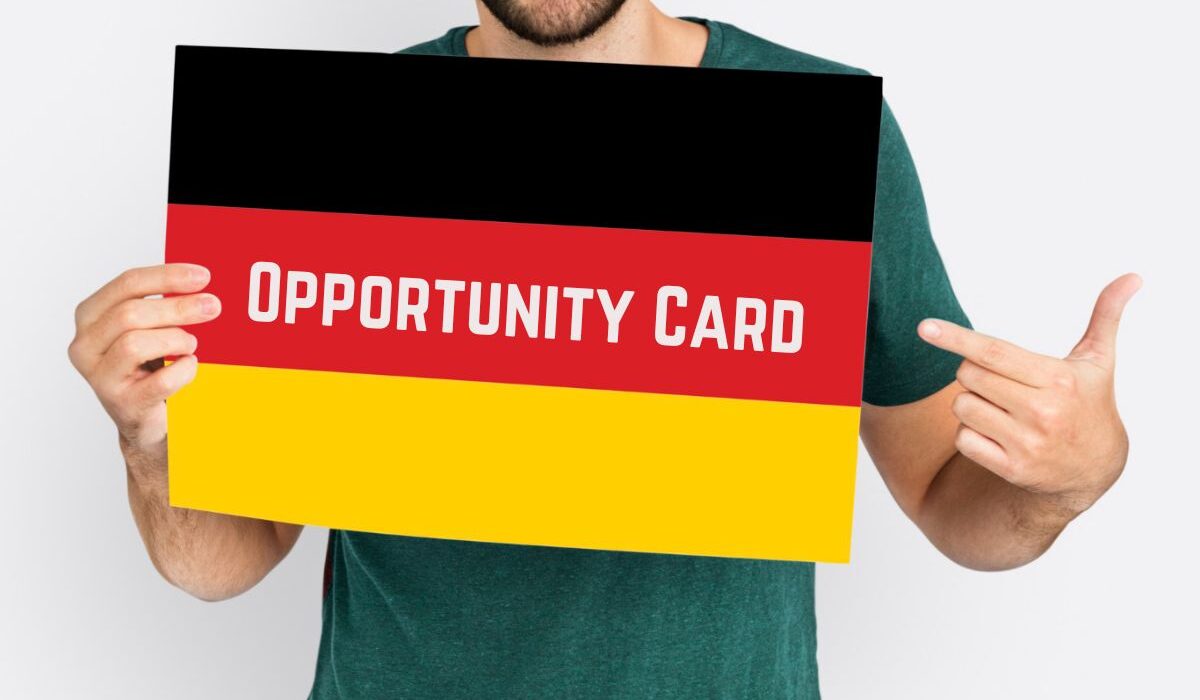Germany’s Opportunity Card (Chancenkarte) is designed to make it easier for non-EU citizens to move to Germany for job search purposes. It operates on a points-based system that evaluates applicants based on four key categories: education and professional experience, language skills, age, and additional qualifications. This card allows qualified professionals to come to Germany without a job offer in hand, giving them the opportunity to search for employment while in the country. It reflects Germany’s ongoing efforts to address its labor shortages, especially in sectors like IT, engineering, healthcare, and skilled trades.
Eligibility Criteria
The Opportunity Card uses a points system to evaluate applicants based on four main categories: education and professional experience, language proficiency, age, and additional qualifications. Each category contributes to an applicant’s total score, and a minimum of six points is required to qualify for the card.
Education and Professional Experience:
- Full recognition of qualifications: If your degree or professional qualification is fully recognized in Germany, you can apply directly without going through the points system. This usually involves verification through the Anabin database.
- Partial recognition: If your qualification is partially recognized, you can earn four points under this category.
Work experience:
- Three points are awarded to those who have at least five years of experience in their field within the last seven years.
- Two points are given for two years of experience in the last five years.
- High-demand professions: Extra points are awarded if your profession is in high demand in Germany (e.g., IT specialists, data engineers, scientists)
Language Proficiency:
- Proficiency in either German or English can earn you additional points:
- Three points for B2-level German.
- Two points for B1-level German.
- One point for A2-level German or C1-level English
Age:
- Two points for those under 35.
- One point for those between 35 and 40.
- No points for those over 40, though they can still qualify by meeting the other criteria
Additional Points:
- One point for applicants who apply with their spouse.
- One point if you have previously spent at least six months in Germany (e.g., studying, working, or interning legally).
- These additional points are designed to prioritize applicants with a higher likelihood of successful integration into German society
Financial Requirements
To secure an Opportunity Card, applicants must demonstrate financial stability to cover their living expenses during the job search in Germany. The required amount for 2024 is €12,324, which must be deposited in a blocked account (Sperrkonto). The blocked account allows monthly withdrawals of 1/12th of the total amount, ensuring that applicants have sufficient funds for one year.
Alternatively, applicants can provide a Verpflichtungserklärung (Declaration of Commitment) from friends or family residing in Germany, or present an employment contract if they already have a job offer.
How the Points System Works: A Case Example
Let’s consider an example of how the points system might work for an applicant:
Applicant Profile:
An electrician with a professional diploma, 7 years of work experience, and A2-level German proficiency.
Points Accumulation:
- Professional experience: 7 years of experience → 3 points.
- Language proficiency: A2-level German → 1 point.
- Age: 34 years old → 2 points.
- Spouse: The applicant applies with their spouse → 1 point.
In this scenario, the applicant accumulates 7 points, qualifying them for the Opportunity Card.
Benefits of the Opportunity Card
The Opportunity Card offers a variety of benefits for both Germany and applicants:
- For Germany: It helps fill critical labor shortages in key sectors and attracts younger professionals who are more likely to integrate well into the workforce and contribute to the economy over a longer period.
- For applicants: It provides a legal pathway to live in Germany while searching for work, without needing a job offer beforehand. It also opens doors to permanent residency and long-term employment prospects, as applicants can transition to other visa types once employed.
Key Professions in Demand
Germany’s Opportunity Card is particularly beneficial for individuals in sectors with acute labor shortages. Some of the key professions in demand include:
- IT specialists (programmers, data engineers, cybersecurity experts)
- Healthcare professionals (doctors, nurses, caregivers)
- Engineers (civil, mechanical, electrical)
- Scientists (chemists, physicists, mathematicians)
Application Process
To apply for the Opportunity Card, the steps are as follows:
- Check your eligibility based on the points system.
- Verify your qualifications using the Anabin database to ensure recognition of your degree or diploma.
- Open a blocked account and deposit the required funds to demonstrate financial stability.
- Submit your application at the nearest German consulate or embassy, including your documents related to education, work experience, language proficiency, and financial security
Conclusion
Germany’s Opportunity Card offers an excellent opportunity for skilled professionals to seek employment in one of the world’s largest economies. By meeting the points-based criteria, applicants can legally reside in Germany for up to a year while looking for job opportunities, making it a highly attractive option for those seeking to advance their careers in a dynamic and robust job market. With the additional benefit of family inclusion and potential pathways to permanent residency, the Opportunity Card is set to play a pivotal role in shaping Germany’s future workforce




